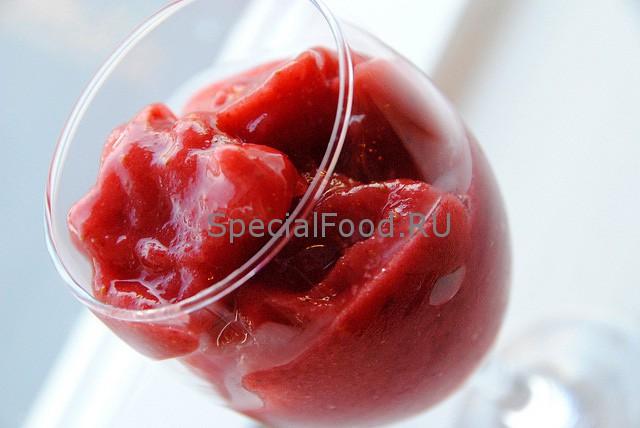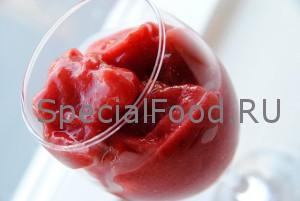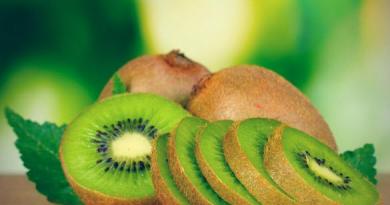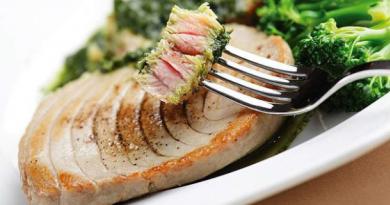Evgeny Shmarov
Reading time: 8 minutes
A A
We say “raspberries” and imagine thickets where bumblebees curl, flowers are fragrant and berries ripen at the same time. This is a feature of the semi-shrub - the fruits ripen almost all summer. In the middle lane, the peak harvest occurs in August. But breeders have made it possible to pick berries almost throughout the summer. Wild raspberries grow in forest clearings; they are fragrant, sweet, but small. Berries are known not only as a component of a rational healthy diet and delicacy, but also as a medicine of traditional medicine.
Varieties and types of cultivated raspberries
First of all, raspberries are divided into garden or cultivated and wild:
The composition and energy value of raspberries
In nutrition, raspberries are among the primary sources of carbohydrates, fructose, water, vitamins and minerals.
Judge for yourself - from 46 "raspberry" kilocalories per 100 g we get:
- 8.6 g of carbohydrates.
- Half a gram of fat.
- 0.8 g of protein.
- 3.8 g fiber.
- One and a half grams of organic acids.
Raspberries are rich in antioxidants and B vitamins.
More specifically, the vitamin composition (in servings per 100 g) is as follows:

Raspberries contain per 100 g of product:
- 40 mg calcium.
- 22 mg magnesium.
- 224 mg potassium.
Benefit and harm
Useful properties of raspberries
- Raspberries are high in natural salicylic acid. It has a mild anti-inflammatory effect. Everyone has tried raspberry tea during a cold. So it works, thanks to salicylic acid, and vitamin C in the composition.
- The berry has a mild diuretic property and can improve digestion. For this, she is very fond of being included in various therapeutic diets for those suffering from edema, constipation and difficult digestion.
- Unlike fruits, the berry contains less fiber, which means it is more suitable for people who are sensitive to roughage. Classical medical diets for patients with cardiac diseases are allowed to include raspberries in the diet during an exacerbation, since it does not increase intra-abdominal pressure and does not have a mechanical effect on the heart.
- Raspberry antioxidants can improve complexion and serve as a good prophylactic against early aging. Folate in the composition of the product is indicated for disorders of the nervous system, as well as in the process of preparing for a healthy pregnancy.
- Raspberries are rich in potassium, which makes them indispensable for physically active people. The product will help them avoid swelling and maintain high contractility of muscle fibers.
- Raspberries are useful not only to relieve the symptoms of a cold, but also to prevent them. The high content of vitamins has a beneficial effect on the human immune system. As for the popular recipe with raspberry jam, it all depends on the method of obtaining the product. If the jam is “cold boiled”, that is, it is raspberries grated with sugar or fructose, it retains more vitamins and acids, and is useful. The usual after heating can only be considered a tasty product, nothing more.
- Raspberry leaves are used in folk medicine. Their decoction has an astringent, tannic property. The leaves are used as a folk remedy for diarrhea and food poisoning. Meanwhile, they perfectly remove excess fluid from the body. Therefore, they are the basis for diuretic teas too.
- Lotions from raspberry leaves are advised to apply to boils, inflamed skin and wounds, as the product has antibacterial properties.
Raspberry harm
- It is not recommended to use raspberries for children suffering from diathesis, as well as for allergy sufferers.
- It is better to avoid it if a person seeks to remove excess retinol and ascorbic acid from the body.
- Raspberries may not be useful in the process of curing gingivitis and stomatitis, as the small bones of the fetus can injure damaged tissue.
- In folk medicine, such a ban is widespread - do not drink cold drinks after raspberries. It is believed that so you can catch a cold. In fact, a person gets sick not because of raspberries, but because of a weakened immune system and exposure to bacteria and viruses, because the berry has nothing to do with it.
Raspberries in the diet of pregnant women, nursing mothers, children, diabetics: recommendations from nutritionists
Concerning the nutrition of pregnant women
opinions differed. Radical nutritionists believe that by the second trimester it is better to reduce the consumption of red berries to a minimum so that the child is not born allergic. Official position of organizations  health care - women can eat raspberries, up to 3 servings per day (a serving for a pregnant woman is 120-150 g), if there are no contraindications such as gestational diabetes and an allergic reaction. Things get less rosy when it comes to breastfeeding. Most doctors here will recommend a hypoallergenic diet, and limiting red berries.
health care - women can eat raspberries, up to 3 servings per day (a serving for a pregnant woman is 120-150 g), if there are no contraindications such as gestational diabetes and an allergic reaction. Things get less rosy when it comes to breastfeeding. Most doctors here will recommend a hypoallergenic diet, and limiting red berries.
In complementary foods raspberries are introduced last, after the child eats the main berries and fruits. should be no more than 40-50 g.
diabetics can eat raspberries if they count bread units and fit into them. It is only recommended not to eat berries on an empty stomach, but to mix them with cottage cheese or serve them in complex protein dishes.
Collection, purchase and storage of raspberries
- Raspberries are harvested by hand , removing one berry from the stem. They must be cut off to prevent the development of diseases and pests.
- buy raspberries stands only fresh, not mint. If the berries have already given juice, there is no other way but to quickly process them into jam.
- Store raspberries in the refrigerator up to 1 week, constantly sorting through, and laying out on flat small plates so that the berries do not crumple under their own weight.
- In vacuum bags raspberries can live up to 2 weeks without freezing.
- Storage for a longer period involves freezing or processing into home canned food.
What dishes can be prepared from raspberries
 From raspberries:
From raspberries:
- Jam.
- Compotes.
- Pies.
- Sweet pastry.
- Various healthy smoothie and sorbet type desserts.
Raspberries and weight loss diets
In "folk" diets, a mono-approach is often used. It is advised to eat only one raspberry or raspberries with some other berries, 1.5 kg per day, and not to eat any more food. From such things, of course, weight is reduced, since there is an energy deficit. . But they do not differ in either health benefits or balance.
Raspberry diets alone can lead to diarrhea, loss of muscle mass, electrolyte imbalance, and failure of the hunger-satiation mechanism. It is from such diets that most often a person indulges in all serious overeating.



